Abstract
The purpose of this paper is to establish ethical guidelines for the use of paradoxical interventions in psychotherapy. These are defined as interventions which are counterintuitive, coercive, and which require non-observance by the client. Arguments are developed to show that such interventions are associated with a psychology that understands individuals solely in terms of their relationship: a 'strong interactionist' position. Ethical principles consistent with such a position are considered, and from these it is derived that: paradox is an ethical technique with resistive patients; it requires consent; its content should be consistent with general ethical principles, especially those of beneficence and non-maleficence; non-paradoxical techniques should be preferred when possible; and it should not be used as an assessment procedure. It is concluded that research is needed to explore the effect of such ethical guidelines of effectiveness, though preliminary impressions are encouraging.
Full text
PDF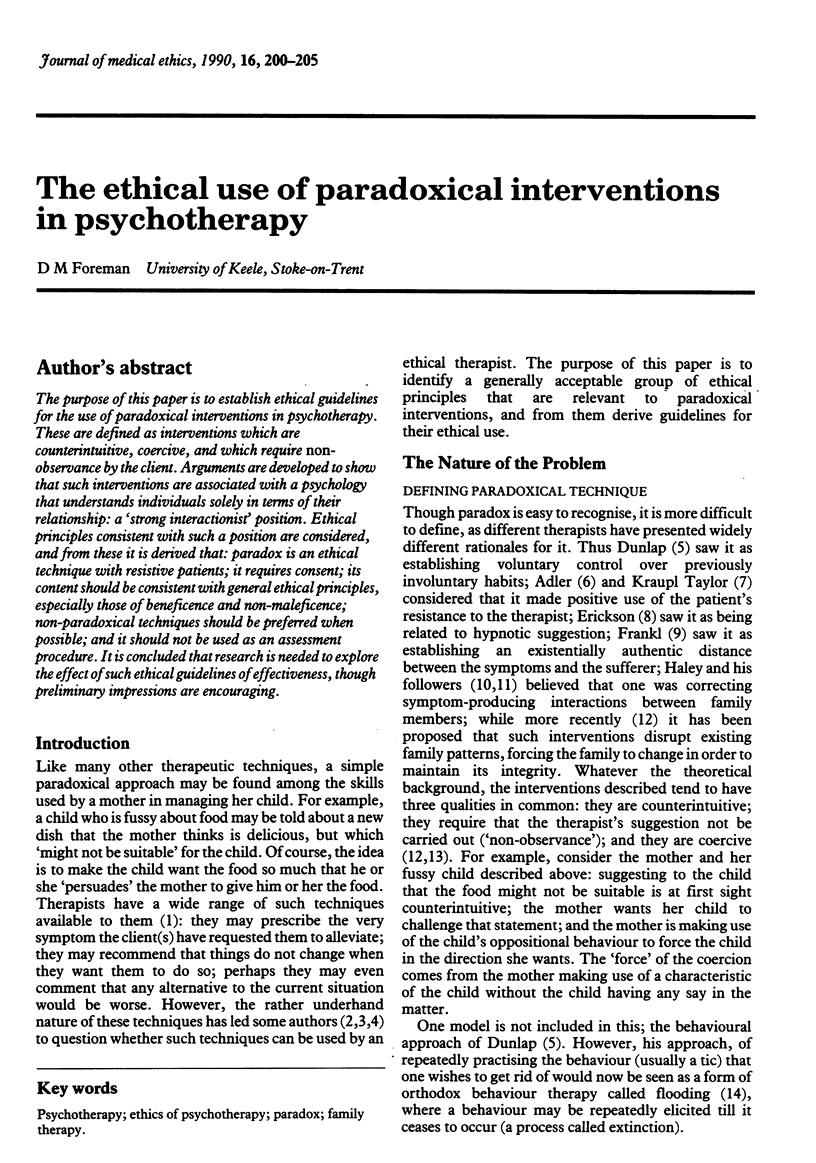
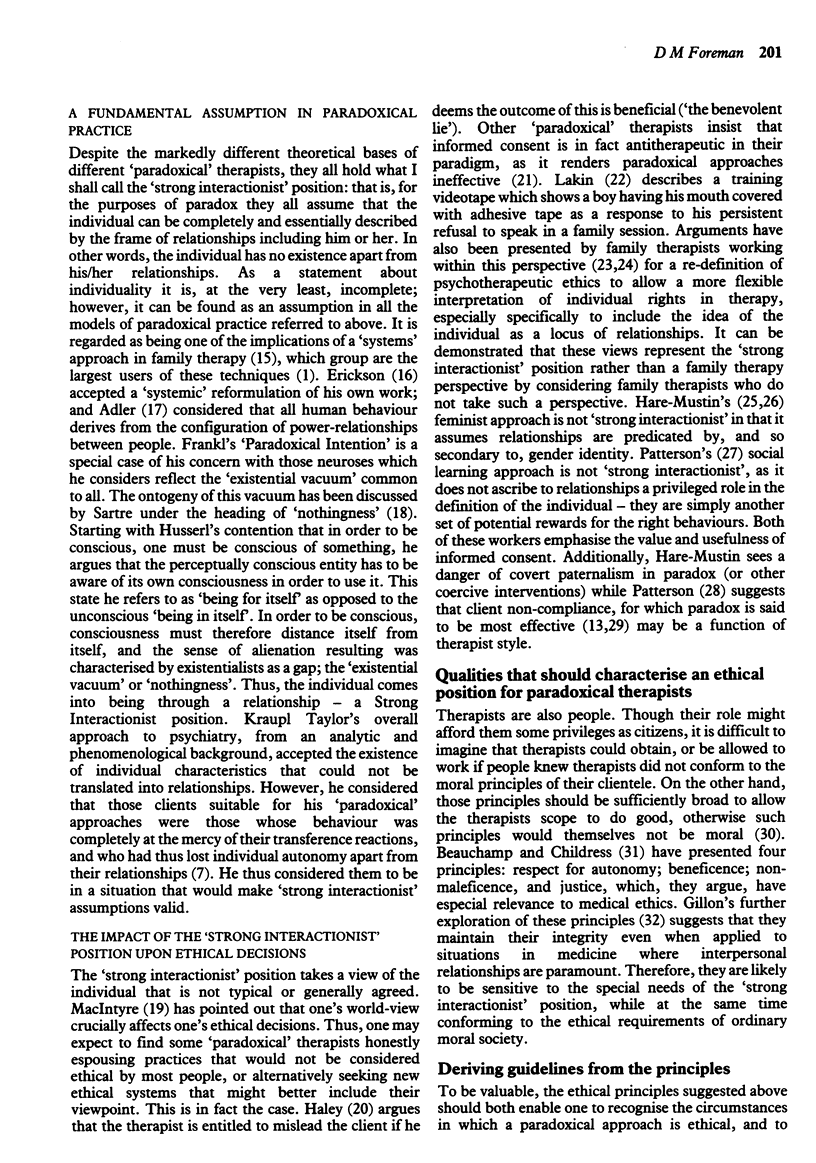
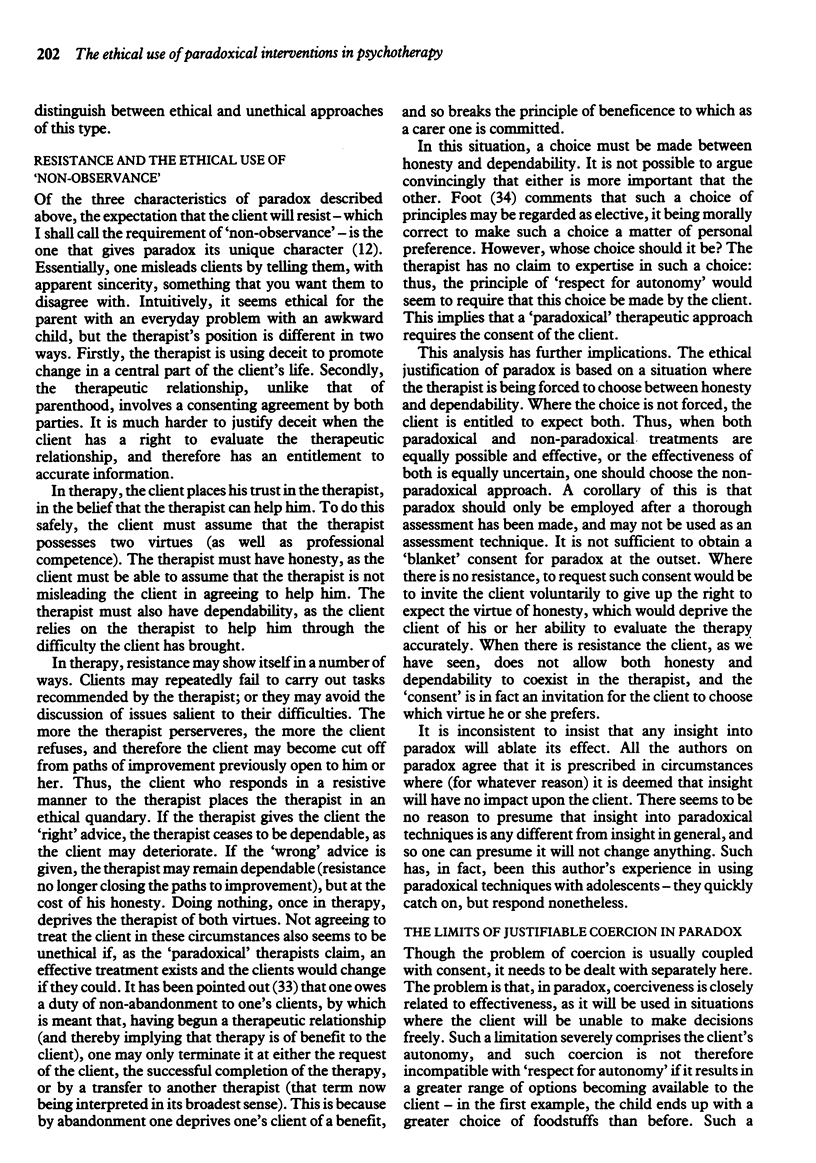
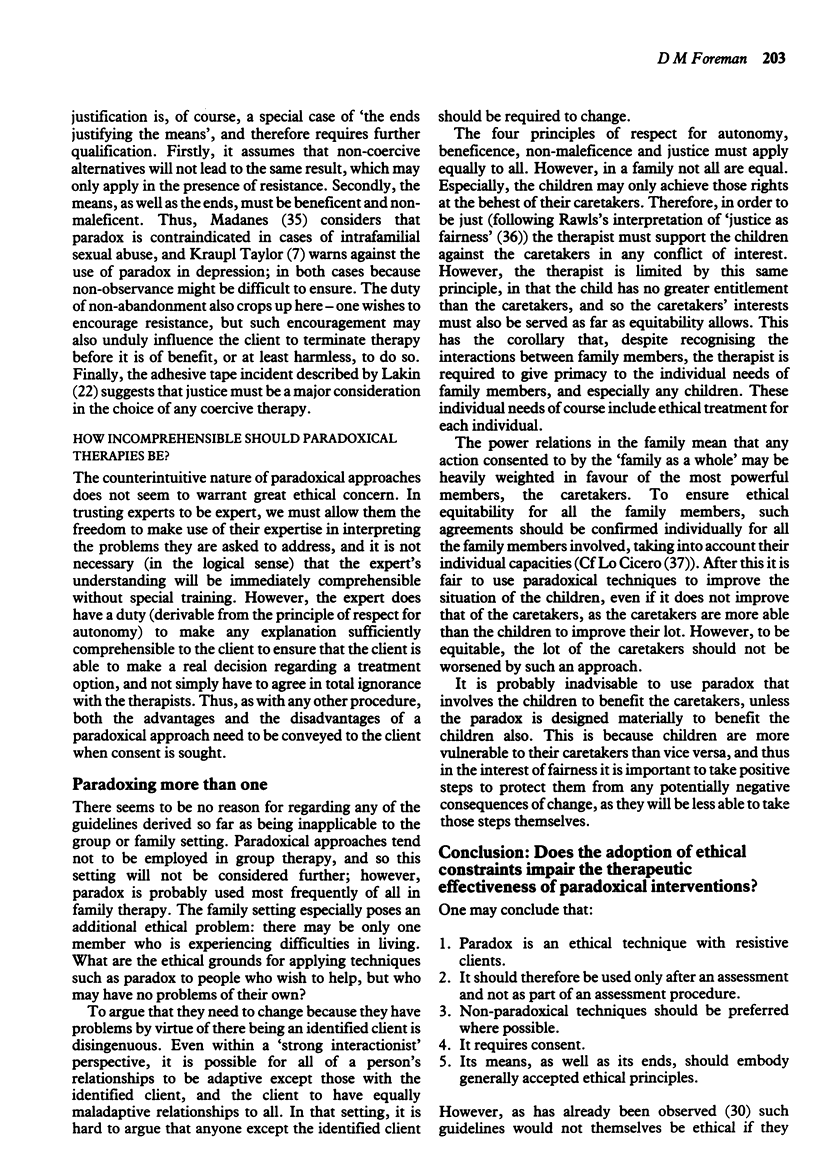
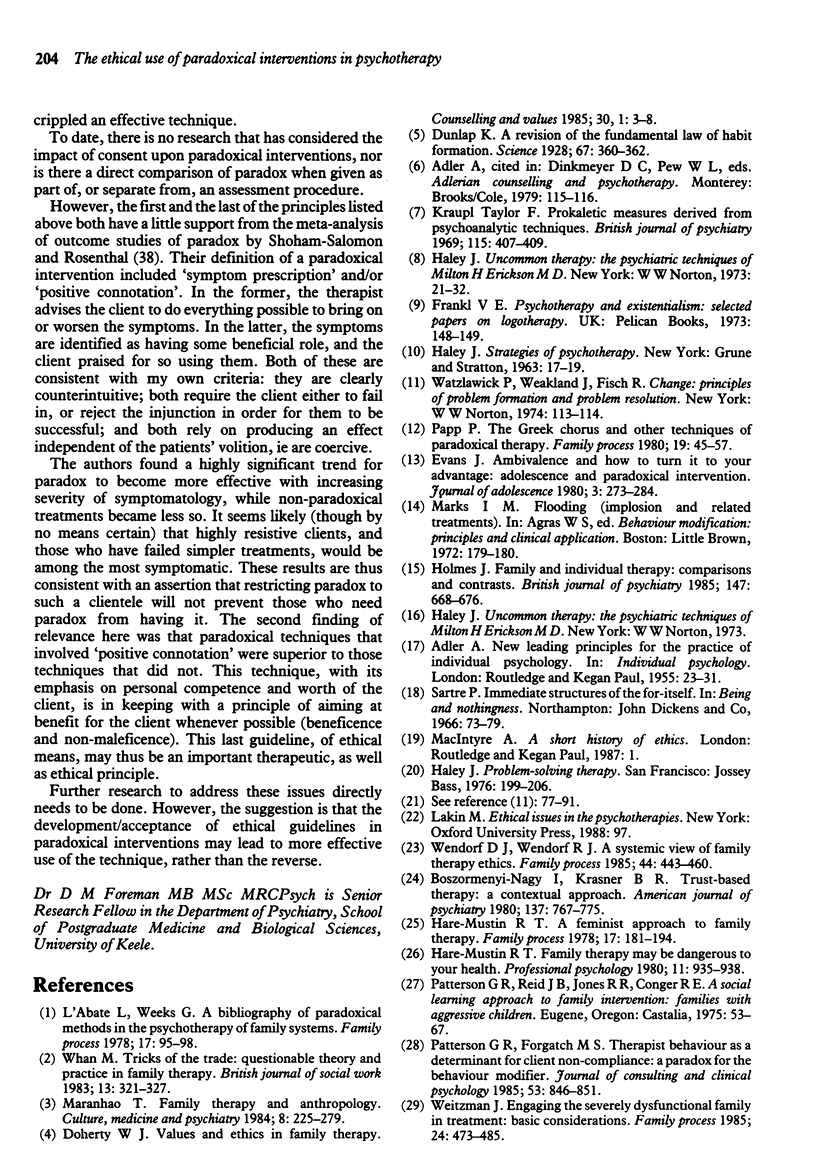
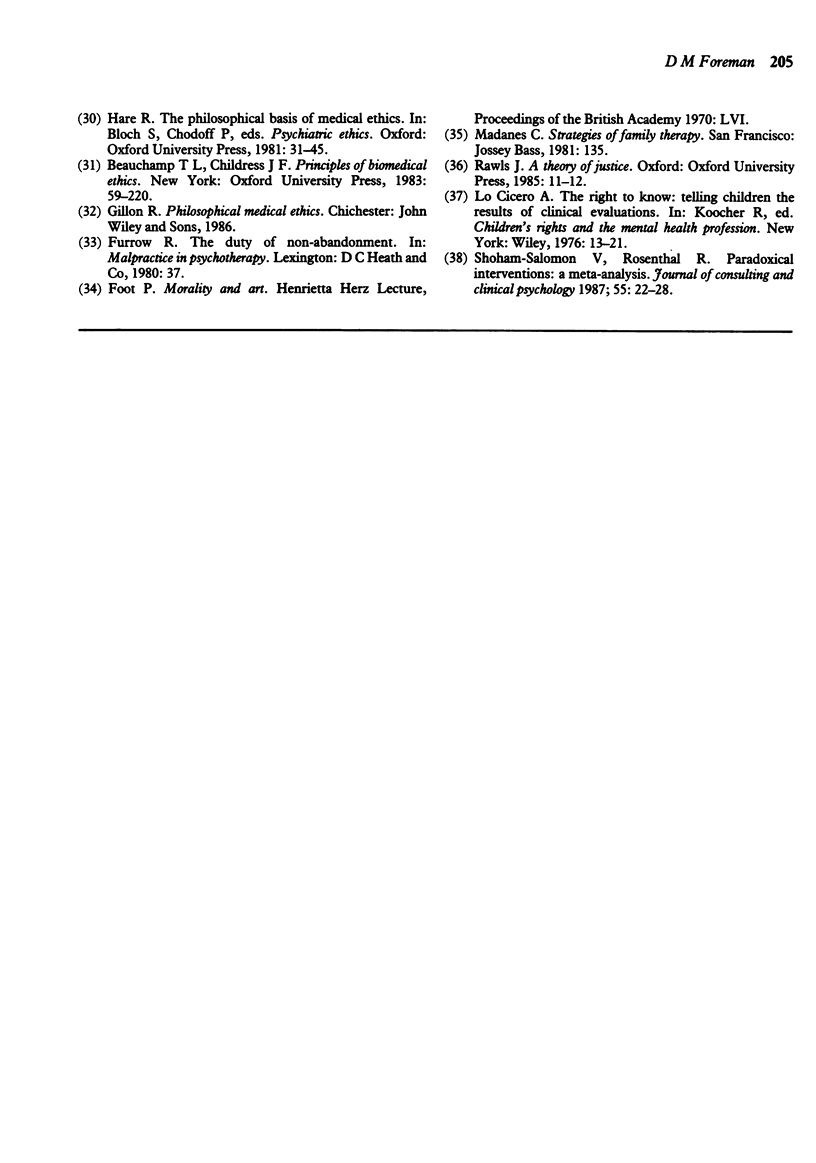
Selected References
These references are in PubMed. This may not be the complete list of references from this article.
- Boszormenyi-Nagy I., Krasner B. R. Trust-based therapy: a contextual approach. Am J Psychiatry. 1980 Jul;137(7):767–775. doi: 10.1176/ajp.137.7.767. [DOI] [PubMed] [Google Scholar]
- Dunlap K. A REVISION OF THE FUNDAMENTAL LAW OF HABIT FORMATION. Science. 1928 Apr 6;67(1736):360–362. doi: 10.1126/science.67.1736.360. [DOI] [PubMed] [Google Scholar]
- Evans J. Ambivalence and how to turn it to your advantage: adolescence and paradoxical intervention. J Adolesc. 1980 Dec;3(4):273–284. doi: 10.1016/s0140-1971(80)80022-4. [DOI] [PubMed] [Google Scholar]
- Hare-Mustin R. T. A feminist approach to family therapy. Fam Process. 1978 Jun;17(2):181–194. doi: 10.1111/j.1545-5300.1978.00181.x. [DOI] [PubMed] [Google Scholar]
- Holmes J. Family and individual therapy: comparisons and contrasts. Br J Psychiatry. 1985 Dec;147:668–676. doi: 10.1192/bjp.147.6.668. [DOI] [PubMed] [Google Scholar]
- L'Abate L. A bibliography of paradoxical methods in psychotherapy of family systems. Fam Process. 1978 Mar;17(1):95–98. doi: 10.1111/j.1545-5300.1978.00095.x. [DOI] [PubMed] [Google Scholar]
- Maranhão T. Family therapy and anthropology. Cult Med Psychiatry. 1984 Sep;8(3):255-79, 281. doi: 10.1007/BF00055170. [DOI] [PubMed] [Google Scholar]
- Papp P. The Greek chorus and other techniques of paradoxical therapy. Fam Process. 1980 Mar;19(1):45–57. doi: 10.1111/j.1545-5300.1980.00045.x. [DOI] [PubMed] [Google Scholar]
- Patterson G. R., Forgatch M. S. Therapist behavior as a determinant for client noncompliance: a paradox for the behavior modifier. J Consult Clin Psychol. 1985 Dec;53(6):846–851. doi: 10.1037//0022-006x.53.6.846. [DOI] [PubMed] [Google Scholar]
- Shoham-Salomon V., Rosenthal R. Paradoxical interventions: a meta-analysis. J Consult Clin Psychol. 1987 Feb;55(1):22–28. doi: 10.1037//0022-006x.55.1.22. [DOI] [PubMed] [Google Scholar]
- Taylor F. K. Prokaletic measures derived from psychoanalytic technique. Br J Psychiatry. 1969 Apr;115(521):407–419. doi: 10.1192/bjp.115.521.407. [DOI] [PubMed] [Google Scholar]
- Weitzman J. Engaging the severely dysfunctional family in treatment: basic considerations. Fam Process. 1985 Dec;24(4):473–485. doi: 10.1111/j.1545-5300.1985.00473.x. [DOI] [PubMed] [Google Scholar]
- Wendorf D. J., Wendorf R. J. A systemic view of family therapy ethics. Fam Process. 1985 Dec;24(4):443–460. doi: 10.1111/j.1545-5300.1985.00443.x. [DOI] [PubMed] [Google Scholar]


